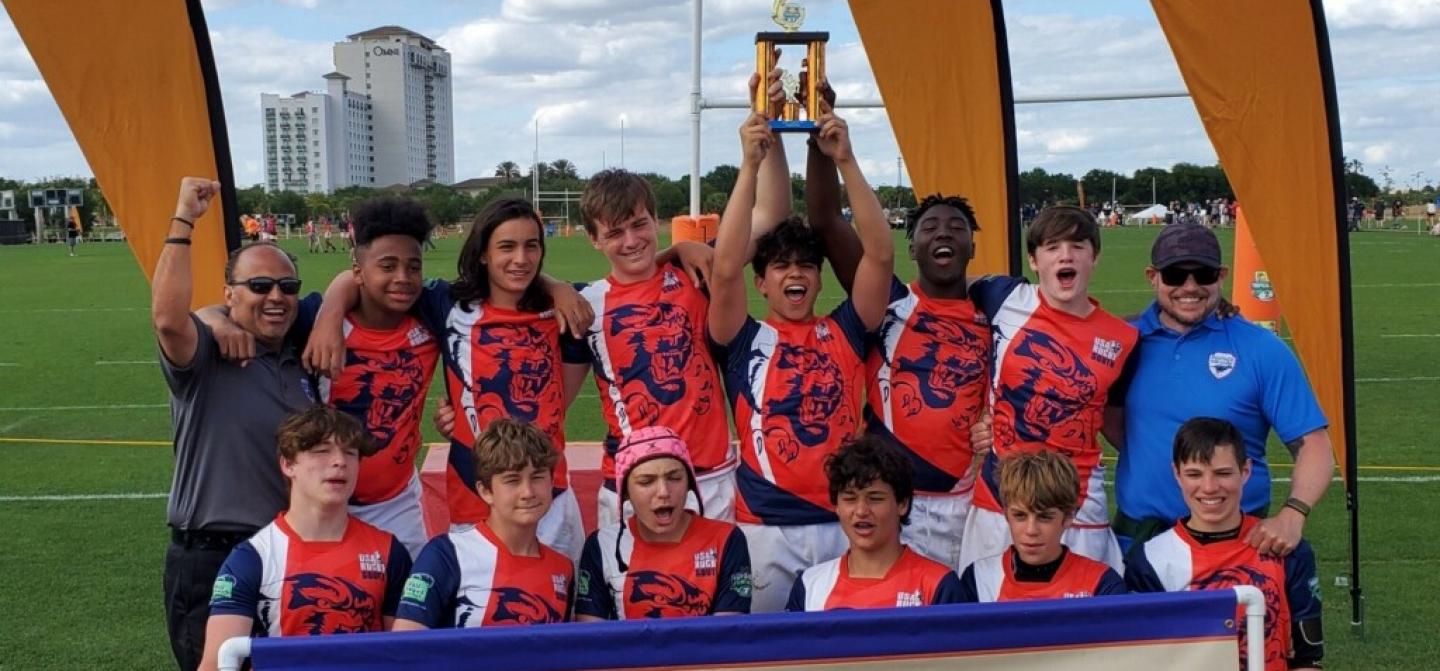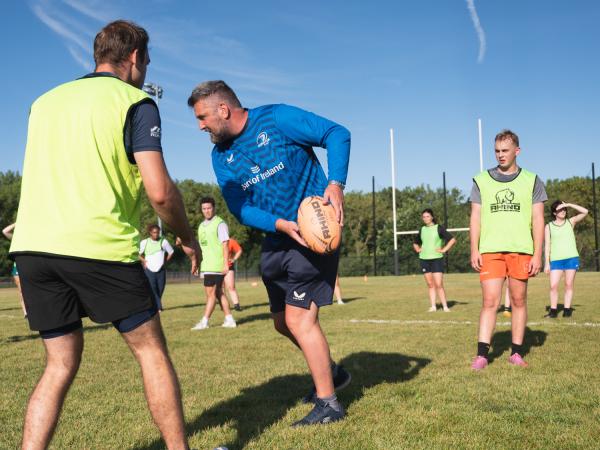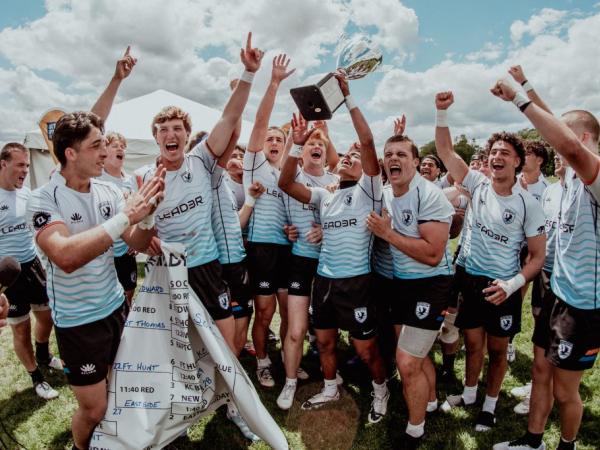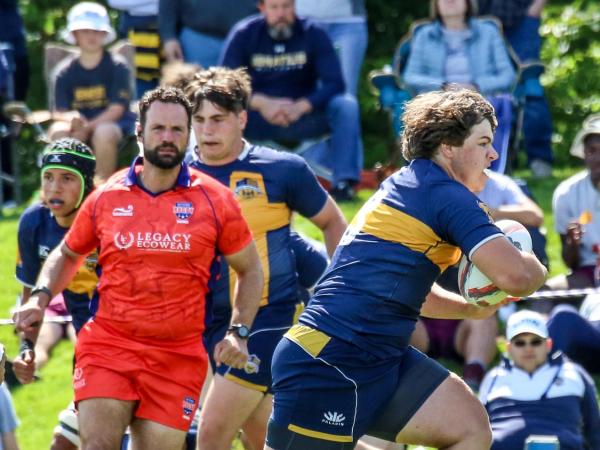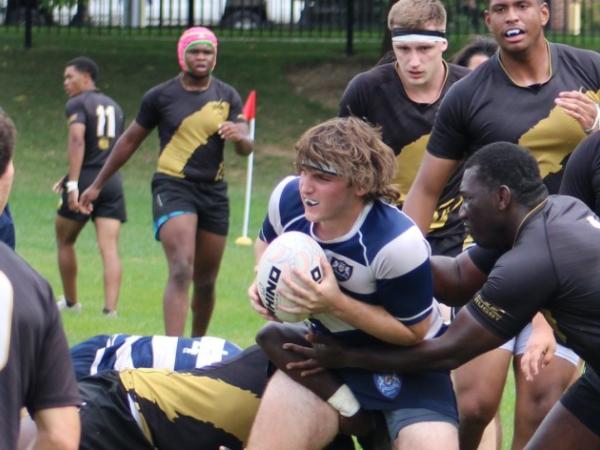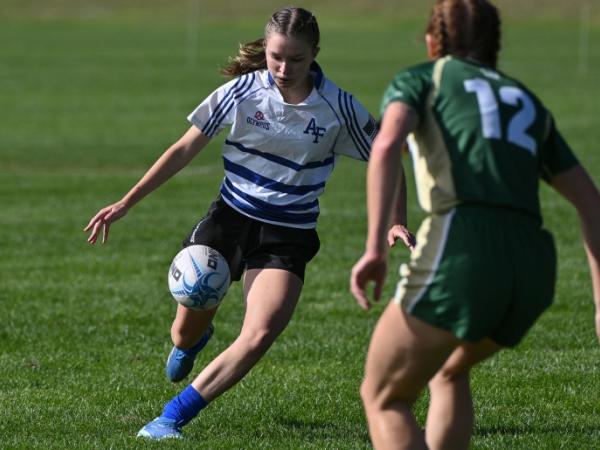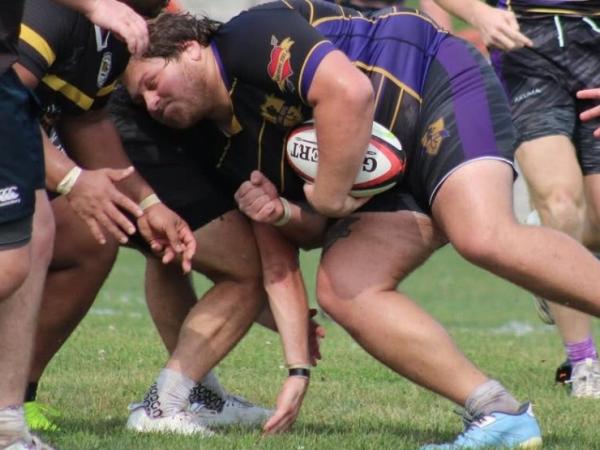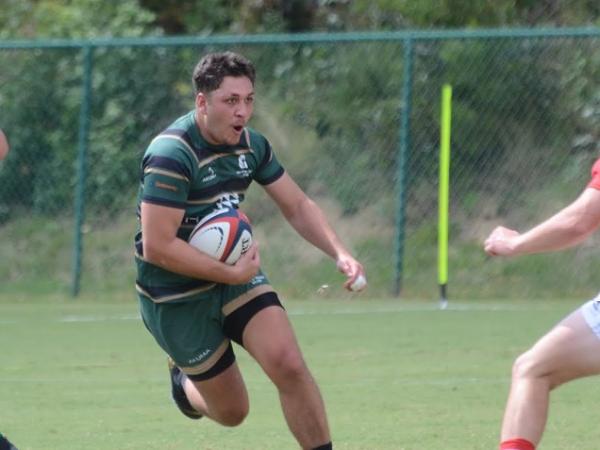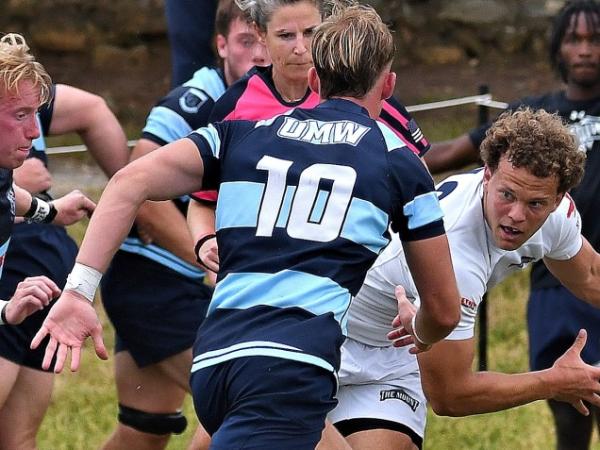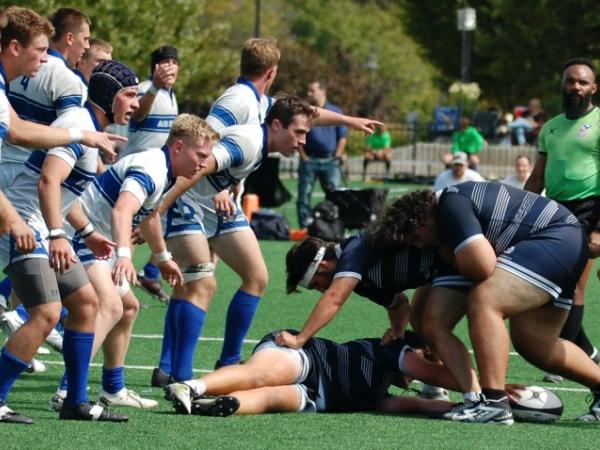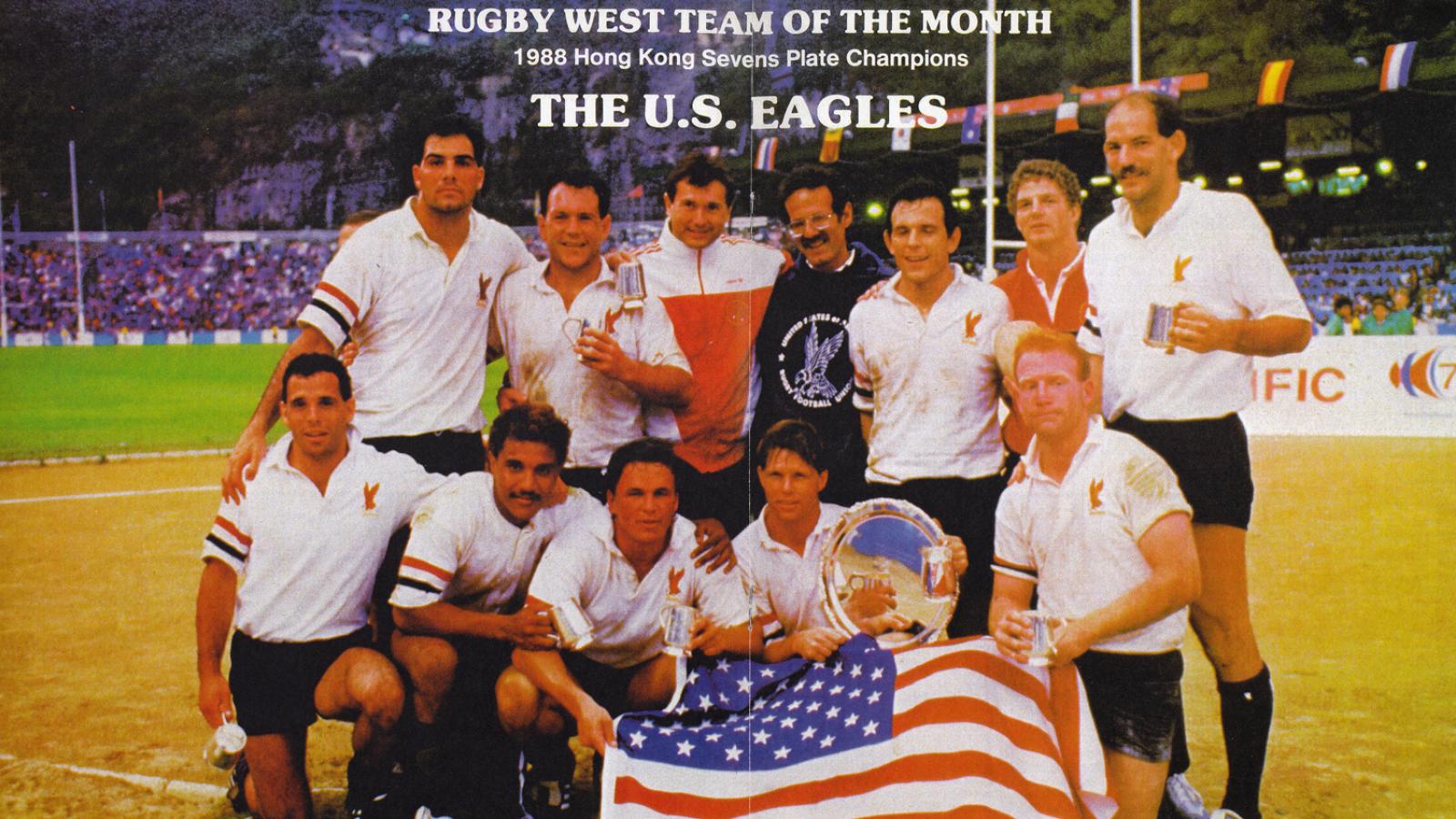Many eyes at the Tropical 7s were on the Panther Rugby Academy.
Given that the Panther program entered 16 teams in the tournament was reason enough, but there was also the fact that the PRA has earned the USA Rugby designation of National Development Academy. With that kind of stamp of approval, they beter perform well.
And they did. The PRA held seven camps across five states in the South, with almost 300 players getting seen. They ended up fielding 192 players on 16 teams.
Wins and losses can’t be the only measurement of this effort, especially in, say, the Boys U18 bracket where eight Panther teams participated. With so many split teams the combined 18-29-1 record was almost inevitable. But it’s also true that 96 players got high-level experience, and this was clearly part of the plan.
Even in U14 Boys, where a Panther team won the bracket, the Panther teams overall went 11-7 because the program decided to field multiple teams.
The exposure, however, for the Panthers players throughout the event was invaluable.
Boys U14s
The PRA U14s Boys teams did very well, with PRA Gold winning it all and PRA White taking 3rd. White lost to Celtic Barbarians on the final play, and had they held on, they would have been top two.
The PRA Gold team featured boys representing North Carolina, South Carolina, Georgia, and Tennessee. The squad was led by wingers Deron "Piggie" Pigrom of the Roswell Rebels in Georgia, and Eli Baumann of the Williamson Warriors in Tennessee. Those two scored 20 tries between them in the six games (all victories) for their team.
PRA Gold scored 249 points over the six matches while giving up only 46. Justin "Onion" Albouy of the Charlotte RedHawks in North Carolina, and JW Sarkees of Death Valley 7s in South Carolina led a defense that had to make Head Coach and U14 Director Michael Orefice proud.
Boys U18s
The original plan had been to take three U16 teams, but the tournament saw little interest in U16s, and so those teams were bumped up to the U18 bracket.
PRA split the teams, putting the top four teams as Panther7s, and the developmental groups as Panther Rugby Academy. Every team featured players who played U16 rugby.
Of the eight teams, five qualified for the Championship playoffs, with the Panther7s Gold team under Coach Mark Patterson taking 2nd place to Rebel Rugby Academy. Interestingly, over half of this team was U16 eligible. Jordan Vassel and Papi Young were excellent for this group, while the Panther7s Red, which took 4th, saw strong weekends from Wes and Liam Piggins, Riordan Sweet, and Will Rimes.
Men U23
Panther Rugby Academy held a U23 ID camp in Knoxville leading up to the Tropical 7s, with 33 players trying out. The PRA decided to concentrate on one strong team, rather than many teams. It paid off with an undefeated run. Head Coach Gary Anderson put together a team of talent from his own college team, University of Kentucky, plus several players from Indiana, Kennesaw State, Louisville, Alabama, MTSU, Western Michigan, and Notre Dame College.
Most of these players had starred for EIRA, or their own college or HS select sides. Joey Backe captain Western Michigan to a DIAA fall final. Isaac Bales had turned heads at Louisville. Peyton Wall had just aged out of a very effective season with Eafgle Impact.
In Pool Play the PRA U23s dominated with a smothering, aggressive defense. They allowed only 22 points in the five pool games while scoring 164.
They followed that up in the championship final, beating Life University 20-0.
Dominant really doesn’t do it justice. A disparate group of players combined quickly to make a cohesive team that just refused to give up tries. In their six games, they were scored on by only two opponents, and those games weren’t close—Panther7s won those games 35-10 and 38-12. In fact, the closest game was the final, and Life was shut out.
Getting The Job Done
In the end, Panther Rugby Academy tried to fulfill its goal of exposing players to elite-level competition, and also succeeding in that level. They did that. The girls teams didn’t do quite as well as the boys—their U18 teams finished 4th and 7th and the U16 teams were 2nd and 3rd in a three-team bracket. But they got the exposure bit done there.
For the boys teams, the PRA threw some players in the deep end and let them find out how tough it is, and some, especially the Panther7s Gold team, exceeded expectations.
And the U14s showed how enthusiastic players of this age group are to get high-level coaching.





